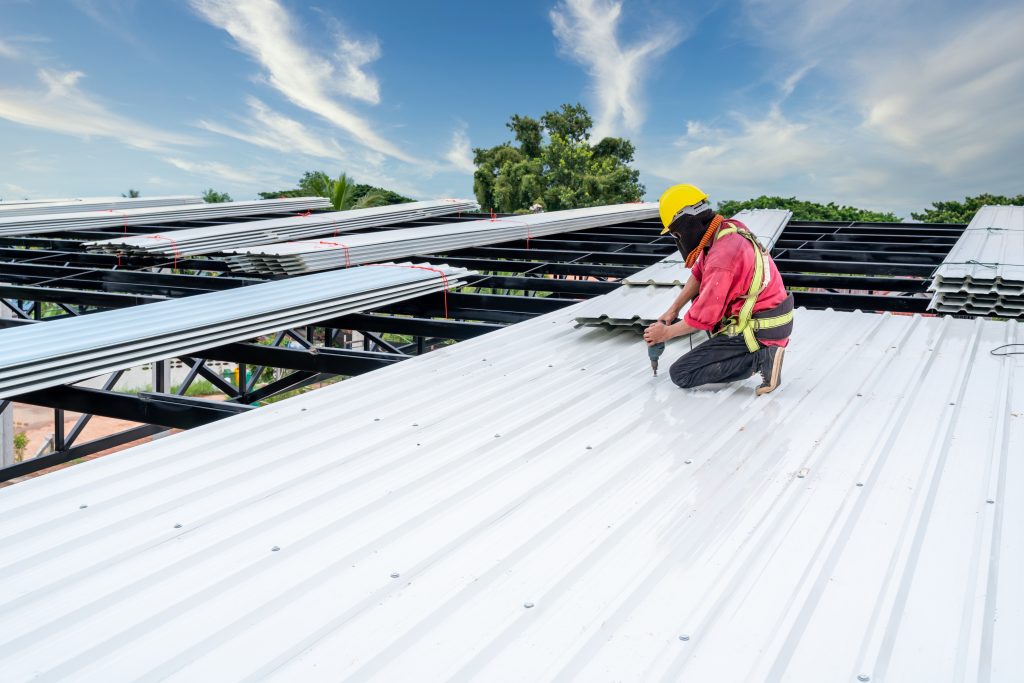The Difference Between Commercial and Residential Roofing

Every building has to have a roof – we all know that. However, even though all roofs seem similar, the reality is a commercial building can have a completely different roof than your average residential home. From design to materials, and even usage, a commercial roof can hold more difficulties than a residential one. It’s important to know the difference between the two as you’re looking into inspections, maintenance, or installations on your next property. The difference between commercial and residential roofing falls into three categories.
The Design
The physical design of a commercial roof is the most obvious difference. Commercial roofs tend to have flat or nearly horizontal slopes commonly found in warehouses, factories, restaurants, and shops. They may also have to include extra openings for things such as smokestacks, skylights, or blowers to release extra heat or smoke.
On the contrary, residential roofs are usually more aesthetic. They are pitched higher than commercial roofs and made with shingles or asphalt. Commercial buildings are usually flat. This is because commercial buildings may use their roofs for storage or maintenance purposes, whereas residential homes usually don’t have much foot traffic (unless you have solar panels, of course). Residential roofs usually do not have any extra openings, except for chimneys or skylights.
Materials Used
When it comes to roofing for homes and businesses, the materials used depend on factors like the roof’s design, budget, and weather in the area. This is where the help of a roofing expert comes in. It’s important to get advice from a roofing expert to choose the right materials for your roof.
For residential homes, the most common roofing material is usually asphalt shingles. This is because they’re easy to install and the most cost-effective for homeowners. However, other options for roofing include wood shakes, metal panels, slate, tile, and ceramic.
Residential materials are not productive in sustaining the life of a commercial roof. Instead, commercial roofs often use materials like, tar, gravel, modified bitumen, single-ply PVC, sprayed polyurethane foam, or other commercial systems.
Roof Installation and Repair
The installation process also shows significant differences. Commercial roofing usually takes several weeks to construct due to its size and the amount of layered materials needed. However, a residential roof installation can be finished in a few days. This also comes down to design. Simpler designs are commonly found in residential roofing.
Repairing a commercial roof can be a big job. When water penetrates the layers of the roof, you should check the entire roof immediately. This could result in extensive repairs or even full reapplications of certain layers of the roof. Even a minor leak can end up costing a lot of money if not addressed promptly.
This is where the luxury of shingles comes into play. For residential homes, repairs or maintenance are usually in isolated spots. Because of this, it only takes a few hours to repair dislodged shingles or loose flashings. Of course, leaks can still pose a significant issue, but they are often caused by minor problems that require minimal repairs compared to those needed for a commercial building.
There also comes a difference in the maintenance of the materials. Residential materials are less complex, making them easier to maintain and fix. However, commercial roofers must know a lot more about all the different layers and materials used throughout the project.
Commercial and Residential Roofing with Carolina Custom Contractors
Now that you know the difference between commercial and residential roofing, which one are you looking for? Carolina Custom Contractors is here to help as your local Pawley’s Island/Georgetown contractors! Whether you need an inspection or are looking to replace your entire roof, our team of professional contractors is ready to help you! Click here for a free consultation so our team can get a better idea of your project!

